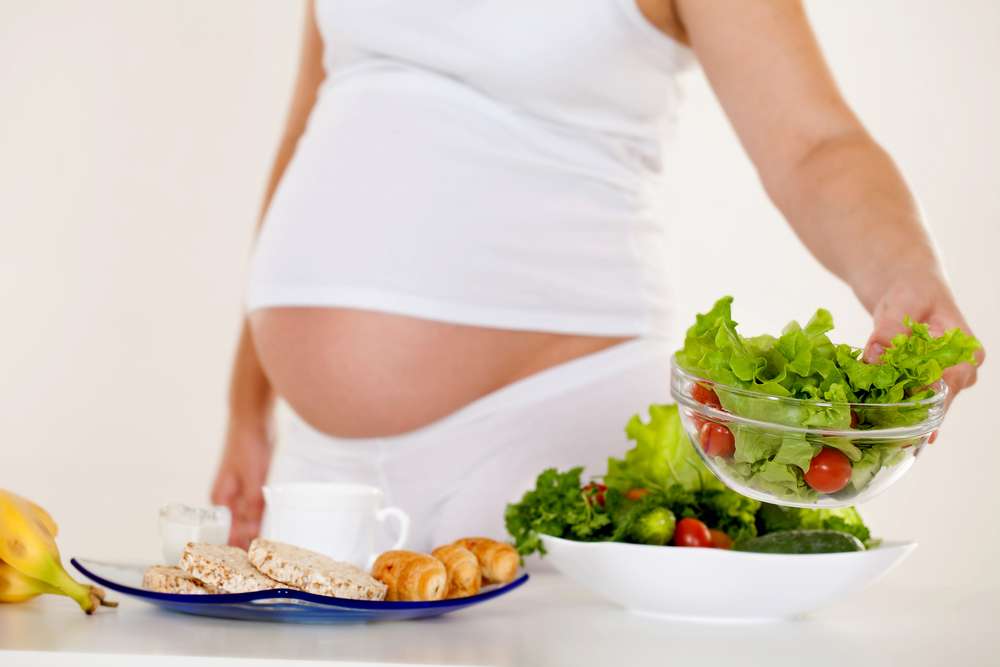The journey of pregnancy is a wonder that alters a woman’s body in many ways. One of the most crucial aspects of this transformative period is maintaining a healthy diet. A well-balanced and nutritious diet during pregnancy not only supports the mother’s well-being but also plays a pivotal role in the development of the baby. In this comprehensive guide, we will delve into the essential components of a healthy pregnancy diet, providing you with easy, interesting, and knowledgeable insights to ensure a nourishing experience for both you and your little one.

Why nutrition is crucial for you and your baby during pregnancy
A healthy diet during pregnancy is of paramount importance, benefiting both the expectant mother and her developing baby. This period of gestation demands increased nutritional support to ensure the optimal growth and well-being of both individuals. Here’s a concise overview of why maintaining a nutritious diet is crucial during pregnancy:
Fetal Development: The nutrients derived from a balanced diet are the building blocks for the baby’s growth and development. Essential vitamins and minerals, such as folic acid, iron, calcium, and omega-3 fatty acids, play pivotal roles in the formation of vital organs, bones, and the nervous system.
Prevention of Birth Defects: Adequate intake of folic acid, particularly in the early stages of pregnancy, significantly reduces the risk of neural tube defects. This underscores the critical role nutrition plays in safeguarding the baby from potentially harmful developmental issues.
Maternal Health: A healthy diet supports the overall well-being of the expectant mother. Proper nutrition helps prevent anemia by ensuring sufficient iron levels, which is crucial for avoiding fatigue and supporting the increased blood supply required during pregnancy.
Weight Management: Striking a balance in calorie intake is essential for healthy weight gain during pregnancy. Maintaining an appropriate weight reduces the risk of complications such as gestational diabetes and hypertension, contributing to a smoother pregnancy experience.
Reduced Risk of Preterm Birth and Low Birth Weight: A well-balanced diet aids in preventing preterm birth and low birth weight, both of which are associated with adverse health outcomes for the baby. Essential nutrients contribute to the development of a healthy placenta, supporting the baby’s growth until full term.
Postpartum Recovery: A nutritious diet during pregnancy lays the groundwork for a faster postpartum recovery. Well-nourished mothers are better equipped to handle the physical demands of childbirth and breastfeeding, promoting a quicker return to optimal health.
Understanding the Nutritional Needs During Pregnancy
During pregnancy, the body undergoes a multitude of changes, and ensuring proper nutrition is vital for a healthy pregnancy. Let’s explore the key nutrients needed:
Folic Acid: The Foundation of Healthy Development: Folic acid is crucial in preventing neural tube defects in the early stages of pregnancy. Citrus fruits, fortified cereals, and leafy greens are good sources.
Calcium for Strong Bones and Teeth: Calcium is essential for the development of the baby’s bones and teeth. Incorporate dairy products, leafy greens, and fortified plant-based milk into your diet.
Iron: Combatting Pregnancy Fatigue: Iron is necessary to prevent anemia and fatigue during pregnancy. Good sources include leafy greens, beans, and red meat.
Protein: Building Blocks of Life: Sufficient consumption of protein promotes the development of the baby’s tissues. Incorporate plant-based protein sources, fish, poultry, eggs, and lean meats into your diet.
Omega-3 Fatty Acids for Brain Development: Omega-3 fatty acids, found in fatty fish, walnuts, and flaxseeds, contribute to the baby’s brain and vision development.
Crafting a Balanced Pregnancy Diet
Now that we understand the essential nutrients, let’s explore how to create a well-balanced diet that is easy to follow and enjoyable:
The Foundation: A Variety of Fruits and Vegetables: Try to eat half of your plate composed of vibrant fruits and vegetables. These nutrient-packed foods provide vitamins, minerals, and fiber essential for a healthy pregnancy.
Whole Grains: Fueling Your Energy: Select whole grains like brown rice, quinoa, and whole wheat bread. These grains are high in fiber and offer long-lasting energy.
Lean Proteins: The Powerhouses of Nutrition: Include lean protein sources such as poultry, fish, tofu, and legumes in your meals. These proteins are crucial for the baby’s growth and development.
Dairy or Dairy Alternatives: Building Strong Bones: Ensure you get enough calcium through dairy or fortified plant-based alternatives to support the development of your baby’s bones and teeth.
Healthy Fats: Nourishing Your Body: Include foods high in healthy fats, like nuts, avocados, and olive oil. The growth of the baby’s brain and nervous system depends on these fats.
Addressing Common Pregnancy Concerns Through Diet
Managing Nausea and Heartburn: Explore easy-to-digest foods and small, frequent meals to manage nausea. Opt for low-acid foods to alleviate heartburn.
Controlling Gestational Diabetes Through Diet: Learn about a balanced diet that helps manage gestational diabetes, focusing on complex carbohydrates and portion control.
Dealing with Food Cravings and Aversions: Understand how to navigate cravings and aversions while ensuring you still meet your nutritional needs during pregnancy.
Are there any foods I should stay away from while I’m pregnant?
During pregnancy, it’s crucial to be mindful of certain foods to ensure the health and safety of both you and your baby. Avoid high-mercury fish such as shark, swordfish, king mackerel, and tilefish, as excessive mercury intake can harm the baby’s developing nervous system. Raw or undercooked seafood and eggs pose a risk of foodborne illnesses, so opt for fully cooked options. Soft cheeses, unpasteurized dairy products, and deli meats may harbor bacteria like Listeria, which can be harmful during pregnancy. Limit caffeine intake and avoid alcohol entirely, as both can negatively impact fetal development. Consulting with your healthcare provider for personalized dietary guidance is essential to navigate these restrictions and ensure a healthy pregnancy.
